News + Media
 |
In the NewsApril 2, 2013Amateur hourStephen M. WaltForeign PolicyUnited States has lofty global ambitions, and its leaders still like to describe the country as the "leader of the free world," the "indispensable nation," and various other self-congratulatory labels. Yet it doesn’t always marry these ambitions to a set of policies and practices that would help it achieve them. Case in point: the well-sourced rumor that the Obama administration is about to appoint Caroline Kennedy to serve as our next ambassador to Japan. The obvious question: Is this an appointment that demonstrates a serious engagement with the complex problems the United States is now facing in Asia? |
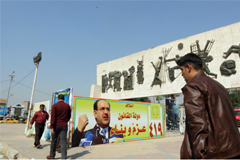 |
In the NewsMarch 6, 2013The democracy boondoggle in IraqChristian CarylForeign PolicyThe U.S. spent billions promoting democracy in Iraq. Now the official verdict is in: It was all for nothing. |
 |
News ReleaseMarch 4, 2013Sharon Stanton Russell, 68, pioneering academicSharon Stanton Russell, 68, died peacefully on February 27, 2013, after a prolonged illness. A prominent and pioneering academic in the field of international migration who advised governments around the world, Sharon was a senior research scholar at the Center for International Studies at MIT. She also served as director of the Mellon-MIT Inter-University Program on Non-Governmental Organizations and Forced Migration from 1997 to 2005 and as chair of the Steering Group of the Inter-University Committee on International Migration from 1999 to 2005. |
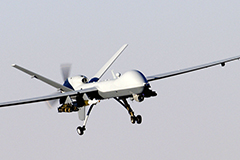 |
AuditFebruary 16, 2013Attack of the drones: ethical, legal and strategic implications of UAV useLena Simone Andrews, MITThe United States has dramatically increased the development, acquisition, and use of unmanned aerial vehicles (UAVs). As these systems have grown, a chorus of skeptics has raised questions about the tactical, ethical, and strategic implications of this technology. |
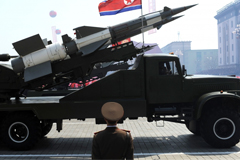 |
Analysis + OpinionFebruary 12, 2013How do you solve a problem like North Korea?David CaseGlobalPostKim Jong Un detonated a nuclear weapon at North Korea's Pungyye-ri test site on Tuesday. The test appeared to be more successful than the two previous explosions.
|
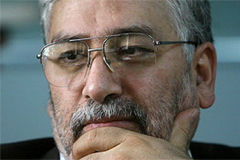 |
In the NewsFebruary 7, 2013Lifting of sanctions will take a few yearsAbbas MalekiPanorama.amAn interview of Irdiplomacy.ir with Dr. Abbas Maleki, a former Iranian deputy foreign minister. |
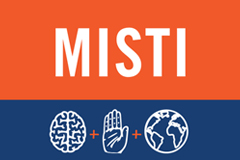 |
News@E40February 5, 2013MISTI's global seed funds winnersA total of 97 faculty international research projects have received $1.99 million in funding from the 2012-2013 MISTI Global Seed Funds competition. These projects were selected from among 196 proposals submitted by faculty and research scientists from 22 departments across the Institute. MISTI Global Seed Funds (MISTI GSF) was established to enhance the internationalization of MIT research and education. Since 2008, the program has awarded $6 million to 304 projects. |
 |
News@E40February 3, 2013CIS summer study grantDoctoral students in international affairs may receive up to $3,000 in summer support for dissertation research on a broad range of global issues. Grants may be requested either for fieldwork and/or archival research, or for home-based research and writeup. The main criteria for determining awards will be the importance of the research question and the quality of the research proposal, and the strength of the letter of support. The deadline for applications is Monday, March 4, 2013. More information about the CIS Summer Study Grant is available here. |
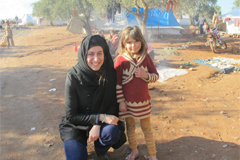 |
Analysis + OpinionJanuary 13, 2013What really drives civil wars?Thanassis CambanisBoston GlobeNot identity, says an MIT scholar, but a volatile jockeying for power. |
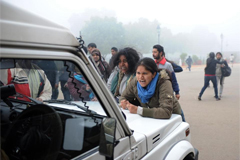 |
Analysis + OpinionJanuary 6, 2013Outrage over the culture of rape in IndiaBy Priyanka Borpujari Boston GlobeThe recent gang rape and subsequent death of a 23-year-old woman in India's capital has made headlines around the world. |



